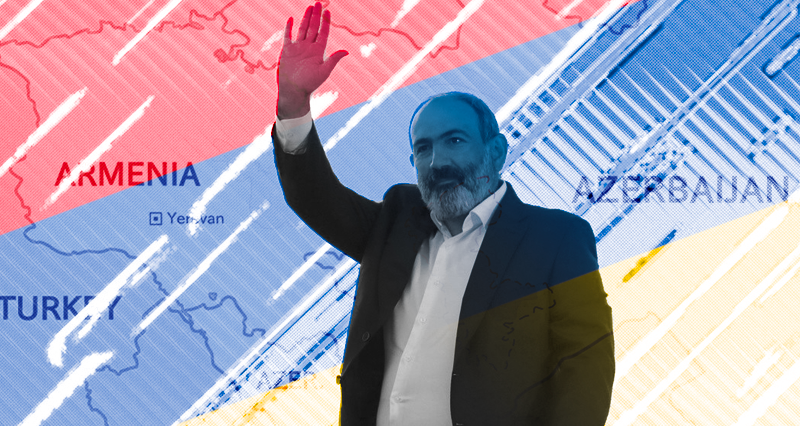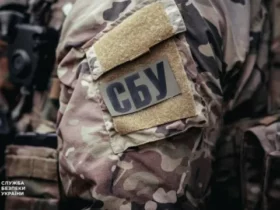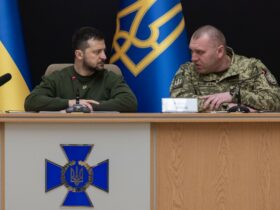On Sunday, the Armenian people elected a new parliament. Voter turnout was 49.4% and the Central Election Committee has announced the preliminary results yesterday. According to these, Nikol Pashinian’s governing Civil Contract party has obtained 53.92% of the votes, while the Armenian Alliance led by former President Robert Kocharian came second, receiving 21.1%.
United World International expert Mehmet Perinçek commented on the reelection of Pashinian, who has suffered a great defeat in Karabakh and was widely protested in the country.
“Armenians saw no true alternative”
Perinçek interpreted the low voter turnout and the electoral victory of Pashinan as a consequence of the will of the Armenian people to reject further aggressive policies. Armenia is in the middle of a deep economic, social and political crisis according to our expert. “More importantly, Armenia had been occupying Karabakh since 30 years. It has lost the 44-days-war in a great defeat, which caused great effect in the country”, he added.
Perinçek emphasized that during the war, the majority of the Armenian population has refused to take part in military actions, with up to 40% of the military personnel defecting. He argued that in the given circumstances, Armenian people did not find in the current elections a leader capable of delivering solutions.
Arguing that Pashinian carries the biggest responsibility for the defeat in Karabakh, Perinçek stated “the Armenian people have considered that the oppositional forces would only repeat his mistakes again, therefore, they saw no real alternative and abstained from the ballot boxes. This explains the low voter turnout”.
“There are two different Pashinians”
Perinçek says that when arriving at power, Pashinian started to follow a pro-Western policy line and adds that “he followed the provocations of Soros, the US and France and took a harsh position against Azerbaijan and Russia. This has played a great role in Armenia’s defeat in Karabakh.”
But following the three-partite-ceasefire (Azerbaijan, Russia, Armenia) there are now two different Pashinians according to Perinçek. He emphasizes that following his defeat, Pashinian is now forced to follow a more moderate line towards Azerbaijan and Turkey. Pashinian’s defeat has led him to decide on a more realistic policy, argues Perinçek.
Nikol Pashinian has signaled a more compromising line immediately after the defeat. Perinçek says that the Armenian Prime Minister in a way fulfills the obligations of the ceasefire. “Pashinian presented a position in favor of regional peace, and this is what the Armenian people need most. Armenia can overcome its economic, social and political crisis only by leading good relations with Turkey, Russia and Azerbaijan.”
Armenians rejected the aggressive opposition
Perinçek emphasizes that the opposition to Pashinian defends a more aggressive policy and a revanchist approach, trying to sabotage attempts to establish peace. Perinçek emphasizes that the Armenian people desire regional peace and have thus rejected in the elections these revanchist approaches and the opposition that presents them. He says “the Armenian people have seen that true peace and welfare is only possible by establishing good relations with the regional counties.”
Arguing that Pashinian has received a high number of votes, because the Armenian people desire regional peace, Perinçek says “the aggressive opposition has suffered a great defeat in the election. This shows that the Armenian people do not deem great importance to the Karabakh defeat.”
Oppositional victory would have caused problems to Russia
Perinçek says that the fact, that Pashinian has become a more compromising leader after the ceasefire bears advantages for Russia and the regional countries. He says “a possible disruption of the ceasefire and the reemergence of an atmosphere of conflict would have placed Russia in a difficult situation, damaging its prestige. With its revanchist approach, the opposition would have pursued hostile policies against Turkey and Azerbaijan, disrupting the atmosphere of peace in the region”.
Perinçek reminds that the opposition has accused Pashinian of having capitulated to Turkey and Azerbaijan. After the defeat, Pashinian and his team have signaled the will to smoothen and develop relations with Azerbaijan and Turkey, says Perinçek, stating “the development of these relations benefit also Russia, because following the war, an initiative similar to the Astana Process has emerged. Now, Turkey and Russia lead an initiative to install a joint-commanded Monitoring Center”.

















Leave a Reply